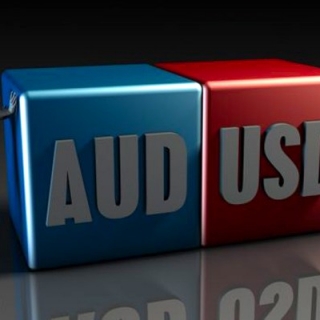


The Australian Dollar (AUD) continued its decline against the US Dollar (USD) for the fourth straight day on Thursday (30/1). However, the AUD/USD pair strengthened after the release of the Export Price Index. Data from the Australian Bureau of Statistics showed export prices rose by 3.6% quarter-on-quarter in Q4 2024, reversing a 4.3% decline in Q3 and marking the first increase since Q4 2023.
The Australian Import Price Index rose by 0.2% QoQ in Q4 2024, bouncing back from a 1.4% decline in Q3 and beating market expectations of a 1.5% decline. The rise was mainly driven by surging Gold prices, which hit an all-time high in October as investors sought safe-haven assets amid ongoing economic uncertainty.
ANZ, CBA, Westpac and now National Australia Bank (NAB) are all anticipating a 25 basis point (bps) interest rate cut from the Reserve Bank of Australia (RBA) in February. NAB had previously forecast a rate cut in May but has now brought its projection forward to the RBA's February meeting.
Easing inflationary pressures towards the end of 2024 have fuelled speculation that the Reserve Bank of Australia could consider a rate cut in February. The RBA has kept the Official Cash Rate (OCR) at 4.35% since November 2023, stressing that inflation must "sustainably" return to its 2%-3% target range before any policy easing.
The AUD/USD pair weakened as the US Dollar (USD) strengthened across the board. The US Federal Reserve (Fed) kept interest rates unchanged on Wednesday, as expected, but gave little indication of a potential rate cut this year, boosting the USD.
Traders are awaiting the release of US fourth-quarter Gross Domestic Product (GDP) growth data, due on Thursday. Market consensus is for annual GDP growth to slow, with the forecast at 2.6%, down from 3.1% previously. Inflation concerns persist, with the Q4 GDP Price Index expected to rise to 2.5%, up from 1.9%. (AL)
Source: FXstreet
The Australian dollar (AUD) held strong at the start of the week after strong Australian inflation data, while the US dollar weakened as market sentiment grew cautious due to the US-Greenland dispute....
The Australian Dollar is the best performer among major currencies in an otherwise calm start tobe the year. The Aussie appreciates nearly 0.5% against the US Dollar in the daily chart, so far, buoyed...
The Australian Dollar (AUD) continued to strengthen against the US Dollar (USD) on Wednesday, posting gains for the third consecutive day. The AUD's strength was driven by the release of the Reserve B...
The AUD/USD currency pair is currently in a bullish consolidation phase, a brief pause in its uptrend, and is hovering around the 0.6600 level during the Asian session on Friday (December 5th). This l...
The Australian Dollar (AUD) rose and reached a three-week high against the US Dollar (USD) during Wednesday's Asian session. This rise occurred despite less-than-satisfactory Australian economic data....
Gold prices briefly caused a stir after hitting a new record, but then slowed. The main trigger: US President Donald Trump withheld the threat of tariffs on Europe and claimed there was a "framework" for a future agreement on Greenland. This calmer...
Oil prices were little changed in Asian trading on Thursday after US President Donald Trump backed down from a threat to impose tariffs on European countries over Greenland. This decision helped ease geopolitical tensions and improve market...
The Nikkei 225 Index climbed 1.73% to close at 53,689, while the broader Topix Index rose 0.74% to 3,616 on Thursday, snapping a five-day losing streak as Japanese shares were lifted by a strong rally in chip and artificial intelligence related...